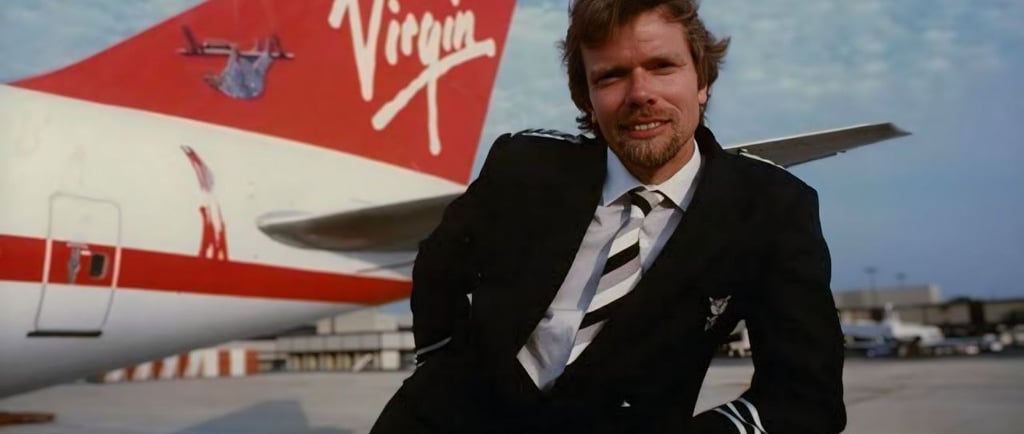From Canceled Flight to Virgin Atlantic – The Grit and Genius of Richard Branson
Richard Branson turned a canceled flight into the launchpad for Virgin Atlantic, redefining air travel with bold ideas and customer-first innovation. With no aviation background, Branson disrupted the industry through creativity, courage, and a relentless belief in experience over tradition.
MOTIVATIONNEWS
Thrivevision
4/29/20252 min read


In the world of entrepreneurship, few stories are as bold and unconventional as Richard Branson’s journey into aviation. What began as a canceled flight turned into the foundation of one of the most iconic airlines—Virgin Atlantic. Branson’s ability to turn obstacles into opportunities exemplifies the spirit of innovation and perseverance.
It all started in 1984, when Richard Branson—then primarily known for Virgin Records—was vacationing in the British Virgin Islands. He had planned to meet his girlfriend in Puerto Rico, but his flight was suddenly canceled. Rather than accept defeat, Branson did something extraordinary: he chartered a private plane, borrowed a blackboard, wrote "Virgin Airlines – $39 single flight to Puerto Rico" on it, and went around the airport selling tickets to other stranded passengers. Every seat sold.
What began as an impulsive act soon sparked a vision. Branson realized that the airline industry—largely dominated by bureaucratic giants—lacked customer focus, personality, and innovation. He saw a space for an airline that prioritized the passenger experience, one that combined quality service with fun and flair.
Despite having no experience in aviation and limited capital, Branson launched Virgin Atlantic Airways later that year. Many industry veterans dismissed him as a reckless outsider. But Branson thrived on disruption. He challenged British Airways and other legacy carriers with features that were, at the time, revolutionary: seatback entertainment, free ice cream during movies, stylish cabin crew uniforms, and a cheeky, customer-friendly brand tone.
Branson's strategy wasn’t just about marketing gimmicks; it was about creating a culture of care. Virgin Atlantic invested in its people and service. The airline empowered staff to make customer-centric decisions without waiting for managerial approval—a radical idea back then.
Of course, there were hurdles. In the early days, British Airways launched a "dirty tricks" campaign against Virgin Atlantic, including poaching passengers and leaking false stories to the press. Branson sued them—and won. The £3 million in damages helped fund Virgin’s expansion.
By the 1990s, Virgin Atlantic had become a serious competitor on transatlantic routes. The airline stood out not just for its product, but for its attitude. Branson often appeared in publicity stunts—from dressing up as a flight attendant to flying hot air balloons—cementing Virgin’s image as a daring, fun-loving brand.
What makes Branson’s story extraordinary is not just that he built a successful airline from scratch—but that he did it without formal business training or a background in aviation. His success was powered by gut instinct, bold decision-making, and an unshakable belief in customer experience.
Virgin Atlantic has faced turbulence—economic crises, pandemics, and fierce competition—but it continues to be a symbol of resilience and innovation in the skies. Today, Richard Branson is a billionaire with ventures in space travel, hotels, and more. Yet it all goes back to that canceled flight, a handwritten sign, and a man who refused to be grounded.
Inspiration
Explore success stories and motivational journeys today.
Growth
Vision
© 2025. All rights reserved.
